
Fig & Lentil Salad from Virtually Vegan
Summer and salad go hand-in-hand and this offering from Heather Whinney’s Virtually Vegan is a fresh, sweet, figgy take on a summertime staple. Complete with a harissa
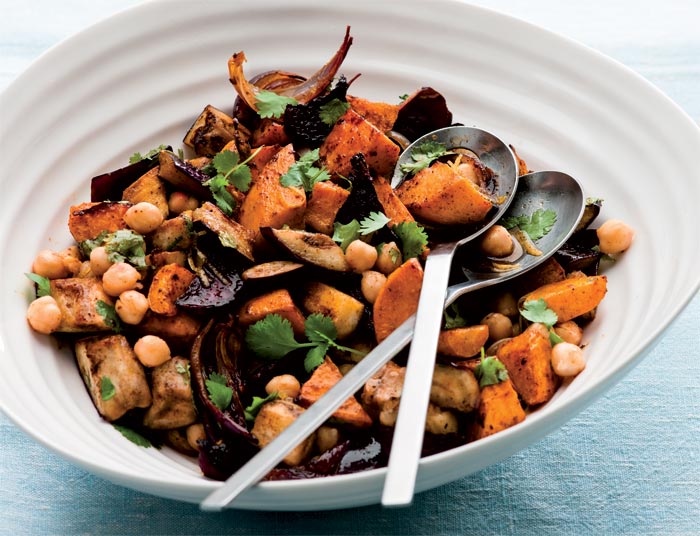
As part of Bowel Cancer Awareness month, we’re giving you advice from Penny Brohn Cancer Care in a series of blogs about the links between cancer and food. Today we’re looking at some of the key ingredients you should be including in your diet to help fight cancer.
If you’re wondering how the foods you eat alter the development of cancer, read our blog on the link between your diet and cancer
At the core of the Penny Brohn Cancer Care approach to healthy eating is the belief that foods in their most natural state are the best for you. A whole-food diet based on fresh, unprocessed foods will keep you the healthiest you can be. We recommend a diet based primarily on plant foods, vegetables and fruit, whole grains, pulses, nuts, seeds, herbs and spices. We also recommend some animal products alongside the plant foods, but in a smaller amount.
Organic or not organic?
If you can, choose organically produced foods, particularly animal products. Two good reasons to eat organic are that these foods have lower levels of potentially harmful residues and, according to scientific research, they may have higher levels of beneficial nutrients. Organic foods tend to be relatively more expensive and not so widely available, so you may want to combine organic and non-organic foods in each meal. The most important thing is to eat a wide variety of whole foods.
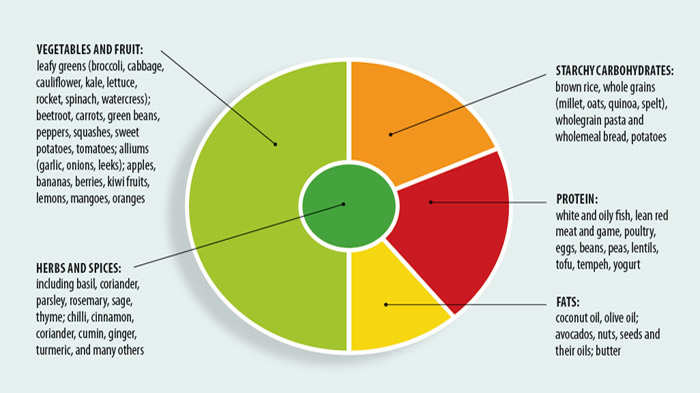
The ideal balanced diet for fighting cancer
Food basics in a nutshell
The principles of a cancer-preventative diet are summed up by balance, variety, colour and moderation. Eat a good balance of the different food groups and vary the foods you eat from within those groups – the colour of your food is a good indication of its nutritional value. The more colour variety the more nutrient value.
Choosing what to put on your plate
It’s possible that your plate may look quite different from what you have been used to. A large portion of your healthy-eating plate should be made up of vegetables and it will include some other plant foods (fruit, whole grains, pulses, nuts and seeds) too. There will be some protein, either in the form of animal products or pulses. You need protein to build and maintain every cell in your body, and protein in your food also helps to regulate the release of sugar into your bloodstream. You also need to eat healthy fats, so they should be included on the plate too, in the form of vegetable oils, nuts and seeds, or butter. And finally, if you add some herbs and spices to your plate, you’ll boost the flavour of your food and benefit from their powerful health enhancing
properties.
There can be treats too
Eat healthily 90 per cent of the time and the odd treat won’t hurt. Most people find that after eating healthy foods for a while, their tastes change, and they prefer wholesome foods. You may find that your old idea of a food treat will no longer appeal in the same way.
Plan to eat the following foods daily.
Vegetables and fruit
Various scientific studies have shown that vegetables and fruit can help protect against cancer. They also contain compounds that support health in general, including fibre, vitamins, minerals and phyto (plant) nutrients. We recommend eight portions of fresh vegetables and two to three portions of fruit every day. Choose a variety of vegetables and fruit in an array of colours, to ensure that you get the full range of important phytonutrients. A simple way to
estimate a portion size is to work out the amount of a vegetable or fruit that would fit into your cupped hand.
Protein foods
One of the vital roles protein plays in your diet is in helping your body to repair itself. Cells can be damaged by disease, injury, surgery and even treatment, so sufficient protein from the diet is essential. Your body also needs protein to maintain a healthy immune system and to prevent infection. We recommend some protein at each meal. On average, we would recommend animal products five to six times a week – eggs or a palm-sized portion of meat, poultry or fish. Animal products are good sources of protein and those we particularly recommend are white meat, lean red meat and game, fish and eggs. Ideally, use a variety of animal and vegetable proteins, as they have different properties. If you choose a vegetarian diet, make sure that you regularly eat sources of plant protein – pulses, nuts and seeds – and high-protein grains such as quinoa.
Looking for a quick way to get more protein into your diet? Try our cancer fighting recipe for Japanese Lamb Burgers with Wasabi Mayo
Pulses
Also known as legumes, pulses include beans, lentils and peas. They have a relatively high rotein content compared to other plant foods, and are also good sources of fibre, vitamins, minerals and phytonutrients, including phytoestrogens. We recommend a variety of well-cooked or sprouted pulses – sprouting enhances the nutritional benefits. Minimize beans if your digestive system is delicate. whole grains Grains that are unrefined – whole grains – contain fibre, B vitamins, vitamin E, and a range of minerals and essential fats.
We recommend a variety of whole grains including quinoa, millet, barley, buckwheat and rye as well as spelt (lower in gluten than wheat), wheat, rice and oats. If you are not eating animal products, combine grains with pulses. healthy fats Your body requires fats to absorb some nutrients, such as the fat soluble vitamins and minerals. They also assist brain function and improve insulin resistance. Healthy fats include oils from olives, coconuts, nuts and seeds (ideally cold pressed, because heavy processing damages fats), as well as green leafy vegetables.
Animal products also contain healthy fats. Oily fish is a good source of the omega-3 fats.
We recommend both unsaturated and saturated fats, although saturated fats found in meat and high-fat dairy products should play less of a role in the diet than the unsaturated fats found in vegetables, nuts, seeds and oily fish. As omega-3 is often deficient in the average Western diet, aim to eat omega-3-rich foods daily: flaxseed (also called linseed), walnuts, hemp seeds and their oils, oily fish, meat from grass-fed animals and free-range eggs.
Oils can become damaged when heated at high temperatures, and should only be heated to a minimal extent. Saturated fats (such as coconut and animal fats) and monounsaturated fats (such as olive oil) are more stable on heating. Although butter is a saturated fat, it is far less processed than any type of margarine or low-fat spread and, in moderation, can play a part in a healthy diet.
Herbs and spices
Natural flavourings in the form of herbs and spices are a rich source of phytonutrients with powerful health-enhancing properties, including antioxidants and anti-inflammatory capabilities.
We recommend using a variety of herbs and spices on a daily basis. Examples include garlic, ginger, chilli, turmeric, rosemary, mint and thyme. Use fresh or dried in salads, cooked dishes and as teas.
Water
Drinking enough water to stay well hydrated is an important part of your healthy eating plan. The best way to do this is to drink regularly throughout the day. An average adult needs between 1.5 litres/52fl oz/6 cups and 2 litres/70fl oz/8 cups of fluid every day. If you are very physically active or the weather is hot, you may want more. Water, herbal teas and fresh vegetable juices can count towards your fluid intake, but keep fruit juices, sugary drinks, caffeinated drinks and alcohol to a minimum.
Here’s a great way to top up your intake of greens: kale’s glucosinolates make it a great food to protect against many forms of cancer. When it’s wilted and served with toasted seeds and cherry tomatoes, it makes a pretty delicious salad too! Here’s how to make it > >
Click here for more information about Bowel Cancer Awareness month
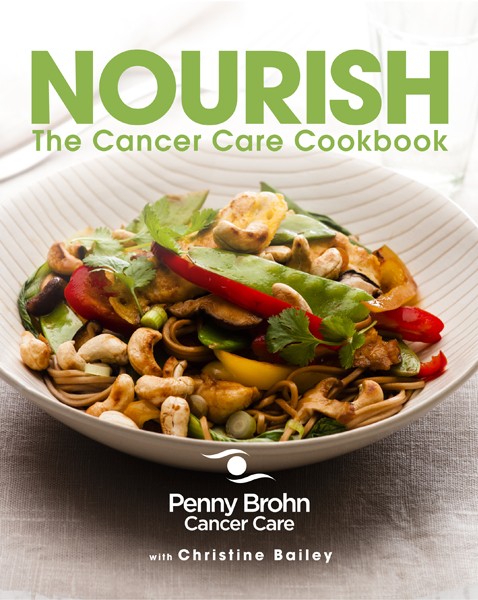
Nourish: The Cancer Care Cookbook embraces the holistic healthy living approach of Penny Brohn Cancer Care, combining nutritional advice with 7-day menu plans and healthy recipes design to help you, or someone you know, live with cancer.
Click here to order your copy with free UK postage

Summer and salad go hand-in-hand and this offering from Heather Whinney’s Virtually Vegan is a fresh, sweet, figgy take on a summertime staple. Complete with a harissa
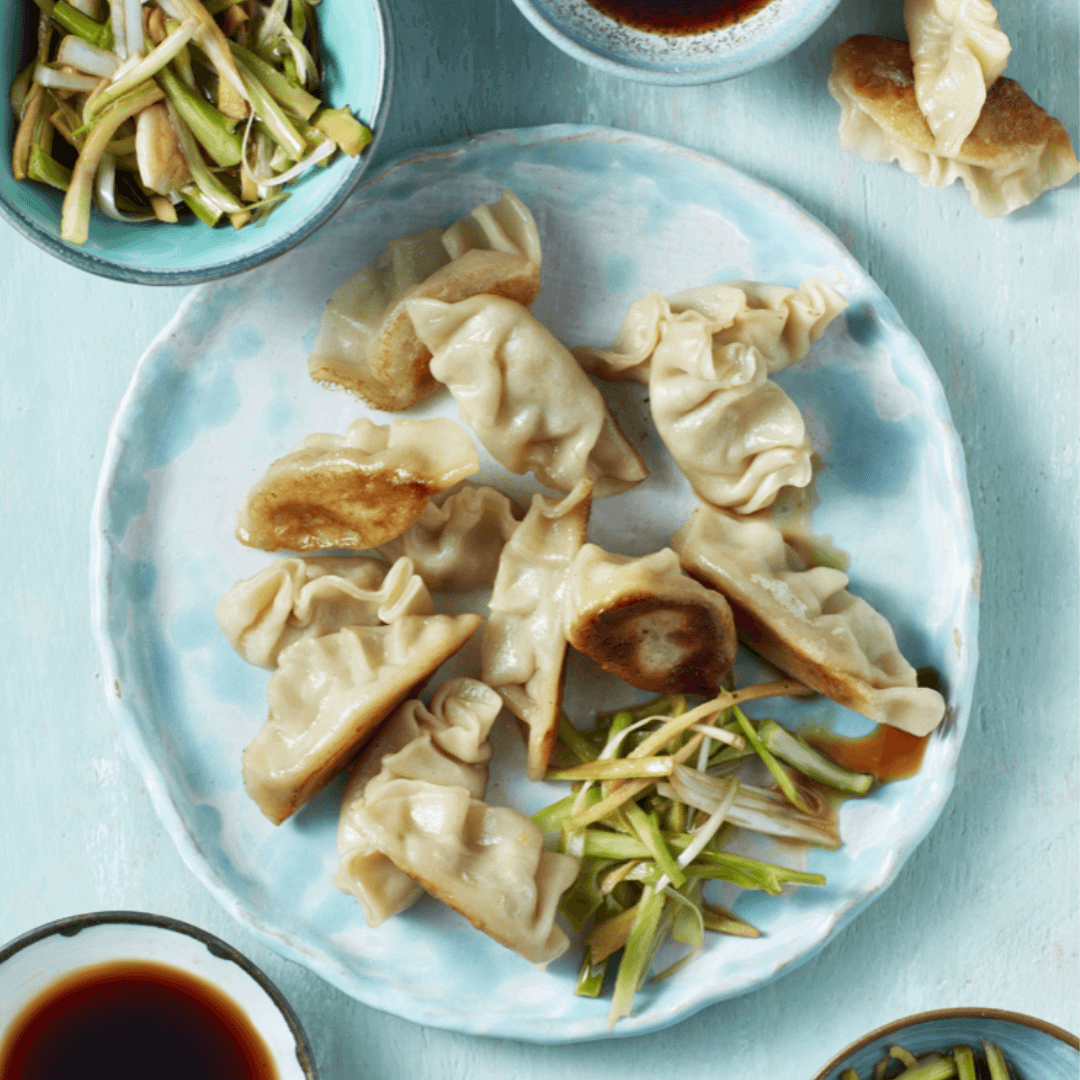
Too Good to Waste by Victoria Glass is THE guide to getting the very most out of your food, in the most delicious way possible! So much

Today we’re sharing a much coveted Real Bread: Slow Dough recipe – Cinnamon and Hazelnut Knots! These sweet knots are beloved all over Scandinavia, whip
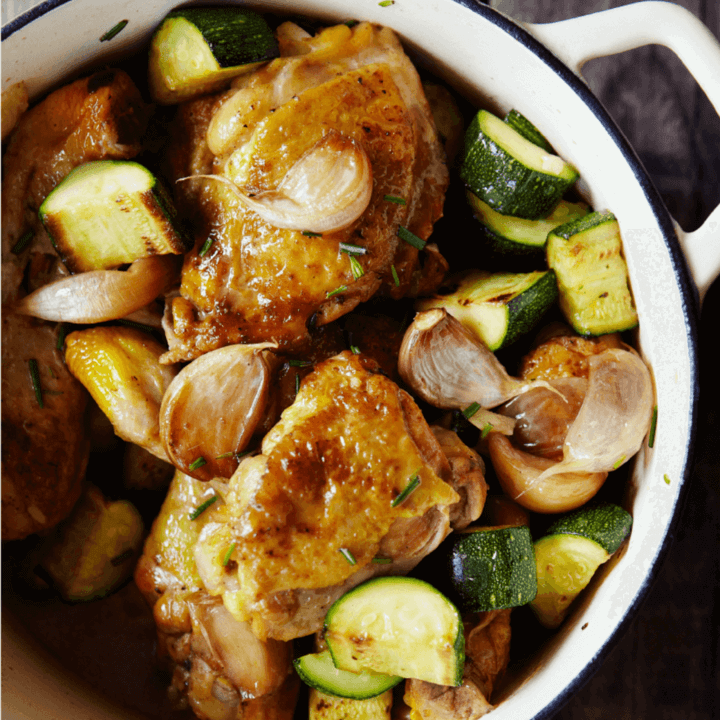
We’re gearing up for the publication of French Countryside Cooking by Daniel Galmiche, coming your way on May 14th (pre-order your copy right here)! To celebrate, we’re sharing

Watkins Media Limited
Shepperton House unit 11
89 Shepperton Road
London, England
N1 3DF

Watkins Media Limited
Shepperton House unit 11
89 Shepperton Road
London, England
N1 3DF